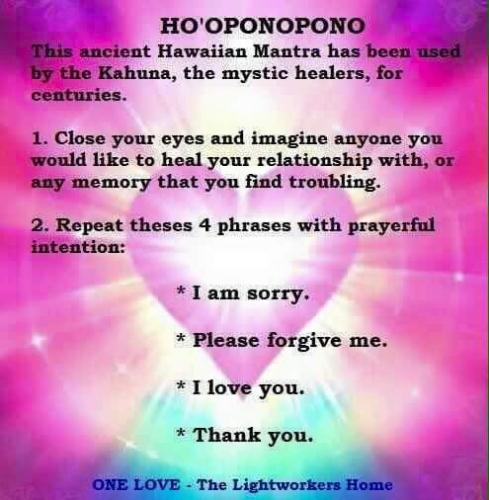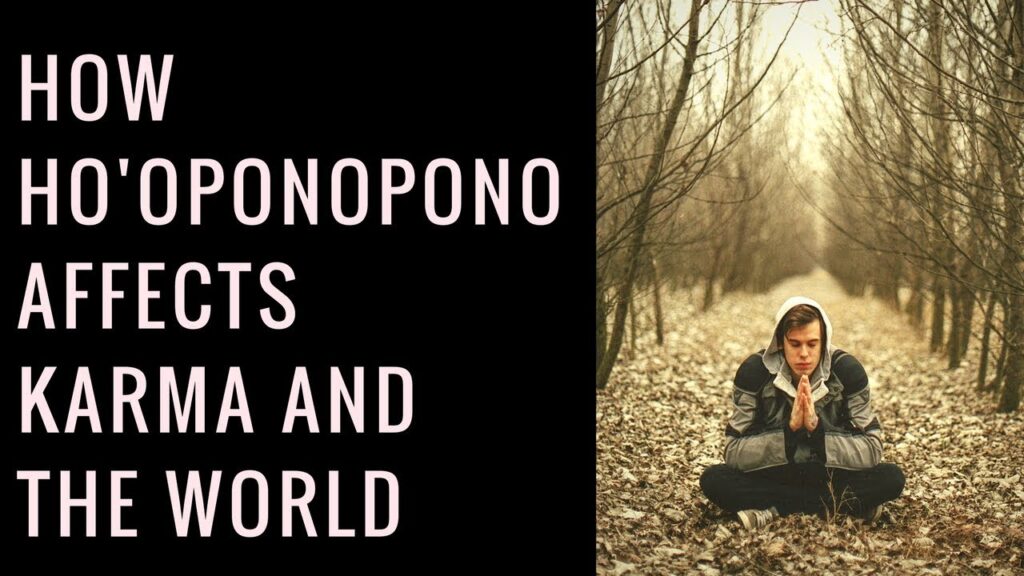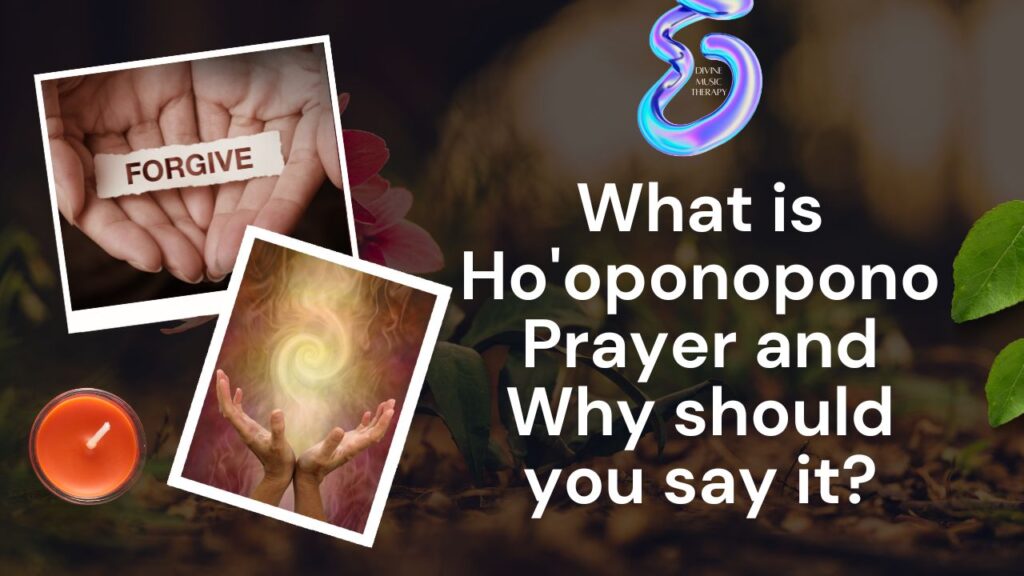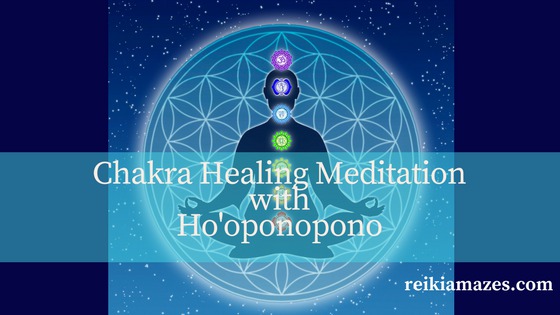You’re about to embark on a fascinating journey into ancient wisdom and profound self-healing practices. In this article, we’ll explore the intriguing connection between Ho’oponopono, an ancient Hawaiian forgiveness and reconciliation technique, and the concept of karma that has resonated across cultures and centuries.
Delving into the depths of these two powerful concepts, we’ll bring clarity to their similarities, uncover their unique perspectives, and uncover how they intertwine with one another. By the end of this article, you’ll gain a deeper understanding of the intricate relationship between Ho’oponopono and karma, and how their synergy can empower you to embrace forgiveness, restore harmony, and cultivate positive change in your life. So, let’s embark on this enlightening journey and uncover the intertwined paths of Ho’oponopono and karma.

Understanding Ho’oponopono
Origins of Ho’oponopono
Ho’oponopono is an ancient Hawaiian practice that has its roots in the traditional Hawaiian culture. The word “ho’oponopono” itself can be broken down into two parts: “ho’o”, which means to make, and “ponopono”, which means right. This practice was traditionally used as a way to resolve conflicts within families or communities and restore harmony. It was believed that by acknowledging and taking responsibility for one’s own thoughts, actions, and behaviors, it was possible to bring about healing and reconciliation.
Purpose of Ho’oponopono
The main purpose of Ho’oponopono is to seek forgiveness and reconciliation. It is based on the understanding that we are all interconnected and that our thoughts and actions have an impact not only on ourselves but on others as well. By acknowledging our role in creating disharmony or negative experiences, we are able to take responsibility and make amends. Ho’oponopono teaches us that by acknowledging and releasing negative emotions, we can tap into our innate ability to heal and create positive change.
Methods of Ho’oponopono
Ho’oponopono is often practiced through a series of four key phrases: “I’m sorry, please forgive me, thank you, I love you.” These phrases are repeated as a form of mantra or affirmation, with the intention of bringing about healing and reconciliation. The process of Ho’oponopono encourages individuals to delve deep into their subconscious minds and release any negative beliefs or memories that may be causing disharmony in their lives. Some practitioners also utilize visualization techniques or physical objects, such as pictures or symbols, to aid in their practice.
Exploring the Notion of Karma
Meaning of Karma
Karma is a concept that originated in ancient Indian religions, such as Hinduism and Buddhism. It refers to the belief that our thoughts, words, and actions create a cycle of cause and effect. According to this belief, every action we take, whether positive or negative, will have consequences that will ultimately be experienced by us. Karma is seen as both a moral and spiritual law that governs our actions and determines our destiny.
Types of Karma
There are various types of karma that are often discussed in spiritual and philosophical teachings. The two main types are “samsara karma” and “prarabdha karma”. Samsara karma refers to the actions and experiences that shape our current life, while prarabdha karma refers to the karmic debts or unfinished business from past lives. Additionally, there is also “kriyamana karma”, which refers to the actions that we are currently engaging in and “aagami karma”, which refers to the future consequences of our actions.
Beliefs about Karma
The belief in karma varies among different cultural and religious traditions. In some traditions, such as Hinduism, karma is seen as a fundamental aspect of life and the moral law of cause and effect. It is believed that one’s actions and behaviors in this life will determine their fate in future lives. In Buddhism, karma is seen as a natural law of cause and effect that influences not only our future lives but also our present life. However, some individuals may interpret karma differently, seeing it as a more metaphorical concept or as a way to encourage personal accountability and responsibility.
Connections between Ho’oponopono and Karma
Similarities in Approach
While Ho’oponopono and karma come from different cultural and spiritual traditions, there are some similarities in their approach. Both practices emphasize personal responsibility and the recognition that our thoughts, actions, and behaviors have consequences. Both Ho’oponopono and karma encourage individuals to reflect on their own actions and take ownership of their part in creating disharmony or negative experiences.
Healing and Releasing Karma
Both Ho’oponopono and the concept of karma offer ways to heal and release negative energy or patterns that may be holding us back. In Ho’oponopono, this is done through the process of acknowledging and releasing negative emotions and beliefs. The repeated use of the four key phrases (“I’m sorry, please forgive me, thank you, I love you”) serves as a means to address and heal these negative patterns. Similarly, in the concept of karma, individuals can work towards healing and releasing negative karma by engaging in positive actions, practicing forgiveness, and cultivating compassion.
Taking Responsibility and Making Amends
Another connection between Ho’oponopono and karma is the importance placed on taking responsibility and making amends. Both practices emphasize the idea that we have the power to change our circumstances and create a more positive and harmonious reality. By acknowledging our role in creating disharmony or negative experiences, we are able to take the necessary steps to make amends and move towards healing and reconciliation.
Benefits and Limitations of Ho’oponopono and Karma
Emotional and Spiritual Healing
One of the main benefits of both Ho’oponopono and karma is the potential for emotional and spiritual healing. By engaging in practices that focus on forgiveness, release, and personal responsibility, individuals can experience a sense of healing and inner peace. The process of Ho’oponopono allows individuals to let go of negative emotions and beliefs, leading to a greater sense of emotional well-being. Similarly, the belief in karma provides a framework for individuals to reflect on their actions and make positive changes in their lives, leading to personal growth and spiritual development.
Transformation and Personal Growth
Both Ho’oponopono and karma offer opportunities for transformation and personal growth. By actively engaging in the process of Ho’oponopono or practicing the principles of karma, individuals can break free from negative patterns and create a more positive reality. These practices encourage self-reflection, self-awareness, and personal accountability, ultimately leading to personal growth and a deeper understanding of oneself and others.
Critiques and Controversies
While both Ho’oponopono and karma have their benefits, they are not without their limitations or controversies. Some critics argue that Ho’oponopono oversimplifies complex issues and places too much emphasis on personal responsibility, overlooking systemic or societal factors. Similarly, karma has been criticized for potentially perpetuating victim-blaming or for promoting fatalistic attitudes. It is important to approach these practices with a critical lens and remember that they are just one tool among many for personal and spiritual growth.

Practical Ways to Apply Ho’oponopono and Karma
Incorporating Ho’oponopono into Daily Life
Integrating Ho’oponopono into daily life can be as simple as incorporating the four key phrases (“I’m sorry, please forgive me, thank you, I love you”) into your daily affirmations or mantra. By repeating these phrases regularly, you can cultivate a mindset of forgiveness, gratitude, and love. Additionally, taking a moment to reflect on any conflicts or negative experiences in your life and applying the principles of Ho’oponopono can help you practice taking responsibility and making amends.
Understanding and Navigating Karmic Patterns
To apply the concept of karma in everyday life, it can be helpful to reflect on your own actions and behaviors and consider the potential consequences they may have. Practicing mindfulness and self-awareness can assist in recognizing patterns or habits that may contribute to negative karma. By actively engaging in positive actions and cultivating positive intentions, individuals can work towards creating positive karmic cycles and reducing negative karmic debts.
Case Studies and Success Stories
Ho’oponopono in Healing Relationships
There are numerous case studies and success stories that highlight the effectiveness of Ho’oponopono in healing relationships. By practicing forgiveness and taking responsibility for their role in conflicts, individuals have reported experiencing improved communication, renewed trust, and enhanced overall harmony in their relationships. The process of Ho’oponopono has helped individuals let go of past grievances and enabled them to approach their relationships with a greater sense of empathy, compassion, and understanding.
Karma as a Catalyst for Growth
Many individuals have shared their experiences of personal growth and transformation through their engagement with the concept of karma. By recognizing the connections between their actions and the consequences they experience, individuals have reported a heightened sense of personal accountability and responsibility. This increased self-awareness has allowed them to make positive changes in their lives, cultivate compassion, and contribute to the betterment of society.

Ethical Considerations and Cultural Sensitivity
Respecting Indigenous Traditions
It is important to approach the practice of Ho’oponopono with cultural sensitivity and respect for its origins. Ho’oponopono is an integral part of the Hawaiian culture, and its practice should be undertaken in a way that honors and respects the traditions and teachings that have been passed down through generations. It is important to seek guidance from knowledgeable sources and to refrain from appropriating or diluting the practice for personal gain.
Appropriation and Misinterpretation
Similarly, the concept of karma should be approached with cultural sensitivity and an understanding of its cultural context within Hinduism and Buddhism. Cultural appropriation occurs when aspects of a particular culture are taken without proper understanding or respect, potentially leading to misinterpretation or misrepresentation. It is important to engage with the concept of karma in a way that acknowledges its cultural origins and promotes cultural understanding and respect.
Scientific Perspectives and Research
Exploring the Efficacy of Ho’oponopono
While Ho’oponopono has not been extensively researched, there are some scientific studies that have explored its potential efficacy. These studies have focused on the impact of forgiveness and gratitude on mental well-being and have found positive correlations. Research suggests that practices like Ho’oponopono can lead to reduced stress, enhanced emotional well-being, and improved relationships. However, more research is needed to further understand the mechanisms and effectiveness of Ho’oponopono.
Analyzing the Concept of Karma
The concept of karma has also been the subject of scientific inquiry, particularly in the fields of psychology and sociology. Research has explored the impact of beliefs in karma on individuals’ behavior, moral judgments, and overall well-being. Studies suggest that belief in karma can have positive effects on moral behavior, as it encourages individuals to act in ways that foster positive karma. However, further research is needed to gain a comprehensive understanding of the psychological and social implications of karma beliefs.

